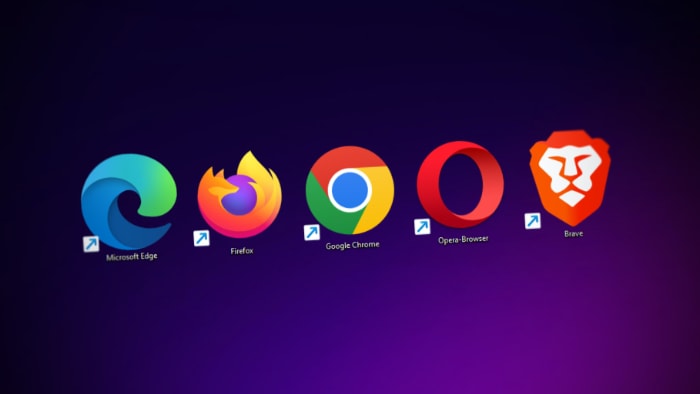The Disadvantages of Incognito Mode: The Security Illusion

Browsing the web with a sense of privacy, believing that your online activities are hidden from the world, is a common experience for users of Incognito Mode. This feature, found in most modern web browsers, promises a cloak of invisibility, tempting users with the idea of leaving no digital footprints.
However, this veil of secrecy isn't as impenetrable as many believe. While Incognito Mode is a handy tool for keeping your browsing history clean on your device, the reality of what it can and cannot do is more complex.
Misunderstood Privacy Protections
Incognito Mode, often seen as a digital cloak, is widely used for private browsing experiences. However, the level of privacy it offers is frequently misunderstood.
Clarifying the Purpose of Incognito Mode
Incognito Mode is designed to prevent your browsing history, cookies, and site data from being stored on your device. This means that once you close an Incognito window, any record of your visit to a website or your search history on that device is erased.
This feature is particularly useful when using shared or public computers, as it minimizes the risk of leaving personal data accessible to the next user.
Understanding Data Visibility
While Incognito Mode deletes local data, it's crucial to understand that your activities are not invisible online. Websites you visit can still collect information about your visit, such as your IP address and the pages you viewed.
Additionally, if you sign into a website while in Incognito Mode, that website can track your activities as usual.
Employers, Schools, and ISPs
Another key aspect to consider is the visibility of your online activities to external entities like employers, schools, or Internet Service Providers (ISPs). If you're using a company or school network, the network administrators can still track the sites you visit, even in Incognito Mode.
Similarly, ISPs can see your browsing activity, as Incognito Mode does not encrypt your traffic like a Virtual Private Network (VPN) would.
False Sense of Security
The use of Incognito Mode often leads to a misleading sense of complete online anonymity and security.
Overestimating Privacy in Incognito Mode
Many users believe that Incognito Mode offers a higher level of privacy and security than it actually does. This belief can lead to risky online behaviors, such as accessing sensitive information on public networks or entering personal details on unsecured websites.
Real-World Implications of Misunderstood Privacy
The belief in total privacy while using Incognito Mode can have real-world consequences. For example, if you use a work computer in Incognito Mode, you might assume your employer cannot see your activity.
However, network administrators can still track your online behavior. Similarly, when shopping or banking online, Incognito Mode does not provide additional protection against online fraud or data theft.
The Risk of Using Public or Work Computers
Using Incognito Mode on public or work computers can give a false sense of security about leaving no trace of your activities. However, it's important to be aware that Incognito Mode does not protect against keyloggers, malware, or other forms of surveillance that might be present on public or work computers.
Understanding the Scope of Privacy Tools
Recognizing the limitations of Incognito Mode is vital for digital safety. It's a useful tool for managing local privacy but not a comprehensive solution for all privacy concerns.
Users should be aware of its scope and combine its use with other privacy and security measures, such as secure connections and vigilant monitoring of online accounts.
Limited Data Protection
The scope of data protection offered by Incognito Mode is often overestimated, leading to misconceptions about its capabilities.
Functionality of Incognito Mode
Incognito Mode's primary function is to prevent the storage of browsing history, cookies, and site data on the user's device. When you close an Incognito window, the browser deletes these elements, ensuring that subsequent users of the device cannot access your browsing history.
This is particularly beneficial when you're using a shared or public computer, as it helps maintain a level of personal privacy.
Limits in Data Deletion
While Incognito Mode deletes local browsing data, it's important to understand that it doesn't affect data stored elsewhere. For example, if you log into a website, that site can still track your actions and store data related to your visit.
Similarly, any files you download or bookmarks you create while in Incognito Mode will remain on your device even after you close the session.
Misconceptions About Online Anonymity
It's a common misconception that Incognito Mode offers complete online anonymity. In reality, it only provides privacy from other users of the same device.
Your online activities can still be tracked and monitored by websites, advertisers, and other third parties. This limited scope of privacy is an essential aspect for users to understand in order to navigate their online presence more securely.
Browser Extensions and Incognito Mode

Browser extensions can significantly enhance your internet experience, offering everything from improved productivity to enhanced security. However, when it comes to using extensions in Incognito Mode, there are some important considerations to keep in mind.
Understanding Extension Behavior in Incognito Mode
Typically, browser extensions are disabled in Incognito Mode by default. This is to protect your privacy since extensions can potentially track and store data about your browsing activity.
If you choose to enable an extension in Incognito Mode, it's important to be aware that the extension may save data or alter your browsing experience in ways that could impact your privacy.
Choosing the Right Extensions for Incognito
When deciding whether to enable an extension in Incognito Mode, consider the nature of the extension and the data it may collect. Extensions from reputable developers that are designed to enhance privacy or security, such as ad blockers or VPN services, can be beneficial.
However, it's crucial to be cautious with extensions that have unclear or suspicious data handling practices.
The Impact of Extensions on Privacy
Even when using Incognito Mode, enabled extensions can collect data on your browsing habits. This data collection can undermine the privacy benefits of Incognito Mode.
It's essential to review the privacy policies of the extensions you use and understand what data they collect and how they use it, especially when browsing privately.
Managing Extensions for Optimal Privacy
To maintain the highest level of privacy in Incognito Mode, manage your extensions carefully. Consider disabling extensions that are not necessary for your Incognito browsing session.
This practice helps ensure that your activities remain as private as possible, with minimal data collection from third-party sources.
Alternative Privacy Solutions
While Incognito Mode offers some level of privacy, it's not a comprehensive solution. For those seeking more robust privacy protection, there are several alternative solutions available.
Exploring these options can help you achieve a greater degree of online security and anonymity.
Virtual Private Networks (VPNs)
A VPN is a powerful tool for enhancing online privacy. It encrypts your internet connection, making your online activities much more difficult to track and intercept.
This is especially useful when using public Wi-Fi networks, as it protects your data from potential snooping by third parties.
Secure Browsers
Some browsers, like Brave, are designed specifically with privacy in mind. These browsers often come with built-in features like tracker blocking, encryption enhancements, and more robust privacy settings compared to standard browsers.
Using a secure browser can provide a higher level of protection for your online activities.
Privacy-Focused Search Engines
Unlike traditional search engines that track and store your search history, privacy-focused search engines like DuckDuckGo and Startpage do not record your search queries. These engines provide a more private browsing experience by preventing the collection of your search data.
Anti-Tracking Tools
Various tools and browser extensions, such as UBlock Origin, help prevent websites from tracking your online activities. These tools block trackers, cookies, and other elements that websites use to monitor user behavior, enhancing your overall online privacy.
Conclusion
Incognito Mode, while useful for certain privacy needs, is often misunderstood and overestimated in its capabilities. It's crucial to recognize its limitations, especially in the context of false security, limited data protection, and the impact of browser extensions on privacy.
Incognito Mode primarily offers local privacy on your device, but it doesn't shield online activities from external monitoring by websites, employers, or ISPs.
Understanding the scope and limits of Incognito Mode leads to safer and more informed online behavior. For comprehensive digital privacy and security, it's advisable to use a combination of tools like VPNs, secure browsers, privacy-focused search engines, anti-tracking tools, and regular reviews of privacy settings.
Employing encryption for personal data further fortifies privacy.
Empowering yourself with knowledge about what Incognito Mode can and cannot do, and complementing its use with other privacy solutions, is key to navigating the digital world with confidence. It's not just about keeping browsing history out of sight; it's about a holistic approach to maintaining privacy and security in an increasingly connected world.


